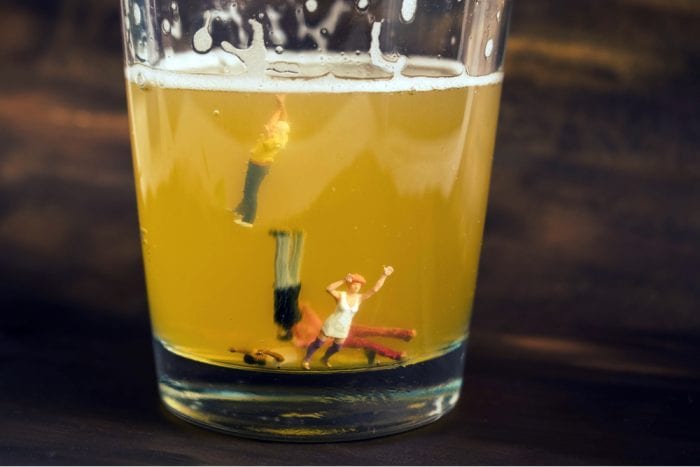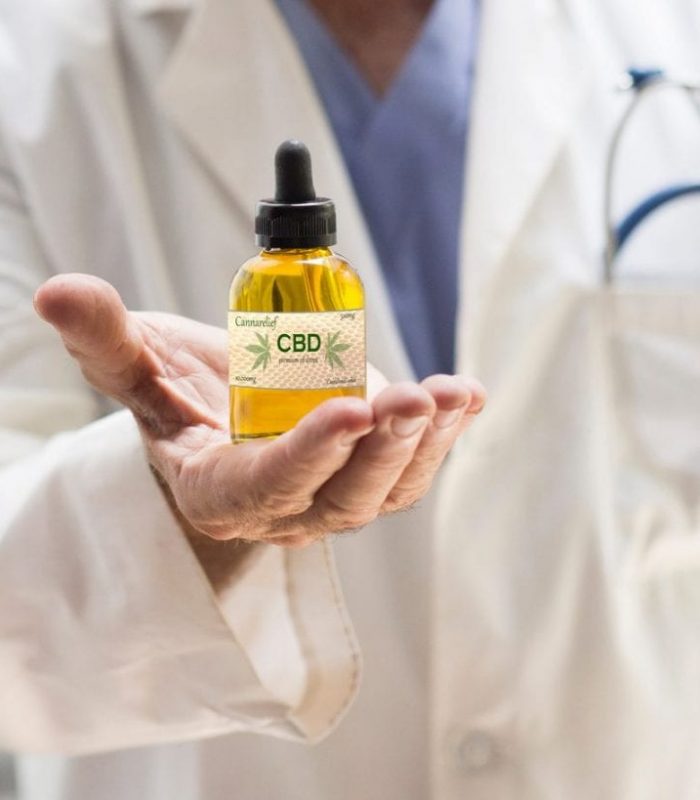How to stop binge drinking may be found in cannabis.
Ever thought about how to stop binge drinking? When you think about problem drinking, the image probably involves paper bag covered bottles and drinking in the street. However, the truth about alcohol abuse in the United States is a little more complex. In fact, the most common form of alcohol misuse in the U.S. is binge drinking. The problem is so widespread that finding an answer is becoming increasingly urgent.
The United States polishes off around 17 billion alcoholic drinks each year. A big chunk of those drinks are consumed by binge drinkers, of whom there are around thirty-seven million. According to the CDC, 1/6 US adults binge drinks four times per month. They drink around seven drinks in each binge. However, regular readers won’t be surprised to learn that cannabis could have a role to play in addressing the problem of how to stop binge drinking.
Research by investment bankers Cowen & Co. found that states which have legalized cannabis have seen a reduced incidence of binge drinking of nine percent below the national average and eleven percent below non-legal states.
The research was conducted for several Canadian cannabis companies. They included Pasha Brands Ltd., Aurora Cannabis Inc., Aphria Inc., Organigram Holdings Inc., and The Green Organic Dutchman Holdings Ltd.

Legal Cannabis Reduces Interest in Alcohol
Cowen & Co.’s findings are supported by research released this month which looked into the impact of recreational cannabis on the alcohol industry. The study, titled “Asymmetric Effects of Recreational Cannabis Legalization,” found that states which legalized recreational cannabis saw a reduction of eleven percent in online searches for alcohol. However, the picture wasn’t all rosy; the researchers discovered an increase of eight percent in searches for tobacco products in states which legalized recreational cannabis.
“It appears the alcohol industry has valid reason to be concerned about legal marijuana and may need creative strategies to avoid market decline if it passes,” said University of Georgia assistant professor Pengyuan Wang. The study used data from 28 million web searches and 120 million ad impressions between January 2014 and April 2017.
Teens Lose Interest in Cannabis in Legaized States
In addition to examining the links between recreational cannabis, alcohol, and tobacco, the research looked into how legalization affects interest in cannabis among adults and teens. The authors found that, in legalized states, searches about cannabis increased by seventeen percent among adults, but that searches in those under 19 decreased.
The scientists believe that reductions in interest in cannabis could be explained by young people’s rebellious tendencies. They suggest that illegal cannabis can make youths feel proud or rewarded when they provoke disapproval from parents or society.
In short, once cannabis becomes legal, it’s less cool for young people. Previous research supports their conclusions. It found that stricter tobacco policies actually increase interest in tobacco among youth. The authors suggested, counterintuitively, if policy makers want to reduce teen cannabis use, then making cannabis more available and less stigmatized could be the most effective approach.
The evidence has obvious implications for alcohol and tobacco industry sales. The fact is that overconsumption is a nice earner for the alcohol industry. People finding out how to stop binge drinking could hurt their bottom lines. Furthermore, other studies have found that alcohol sales drop fifteen percent in states with legal medical cannabis. So, it’s no surprise that major alcohol and tobacco companies are hedging their bets by investing in cannabis.
Legalized States Have Lowered Substance Abuse in Teens
A recently released study suggested that legalization can help to reduce cannabis consumption in teens; furthermore, this is beyond its effects on interest in alcohol and tobacco.
Scientists at Montana State University examined two-yearly surveys of 1.4 million US high school students taken between 1993 and 2017 by the US Centres for Disease Control and Prevention.

During that period, overall cannabis consumption in American youth went up. However, in states with legal recreational cannabis, the odds of teen cannabis use dropped by 8% and the odds of frequent use among teens by 9%. The change only happened in states with legal recreational cannabis; legalizing medical cannabis had no appreciable effect on teen consumption.
The results “should help to quell some concerns that use among teens will actually go up” with legalization, the lead author Mark Anderson told the associated press.
The authors believe that recreational legalization could actually make it more difficult for teens to get hold of cannabis due to dispensaries operating under strict proof of age requirements. Furthermore, dispensary cannabis is often less affordable than black market alternatives.
Previous Studies on Alcohol Abuse
Previous studies have been unclear on the effects of legalizing recreational cannabis on teen consumption. However, the results of Anderson’s et al.’s study could have greater validity, given the sheer volume of data analyzed.
Overuse of alcohol is a complex issue with no easy solutions. We need more research to fully answer the question of how to stop binge drinking in America. However, it looks like legalizing cannabis might play a role in reducing binge drinking, alcohol sales, and interest in alcohol.
On top of that, large scale studies have found that legal cannabis can help reduce rates of cannabis consumption in teens. While the alcohol industry might disagree, that sounds pretty great to us!





